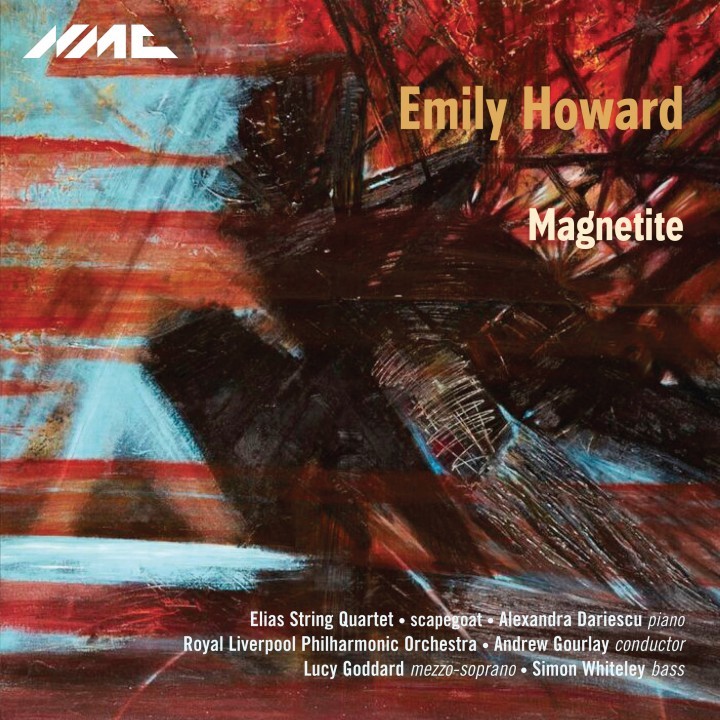Emily Howard
Emily Howard's distinctive music is notable for its granular use of instrumental colour, powerful wordsetting and inventive connections with mathematical shapes and processes. Antisphere – the latest addition to Howard's ongoing series of orchestral geometries – was commissioned by the Barbican for Sir Simon Rattle and the London Symphony Orchestra, and opened the 2019-20 season. The 2019 premiere of a new setting of mathematician Ada Lovelace’s text But then, what are these numbers? also took place at the Barbican, as part of 'Ada Lovelace: Imagining the Analytical Engine', curated by Howard (b. 1979). That same year, The Anvil: An Elegy for Peterloo, for orchestra, chorus and soloists with a text by Michael Symmons Roberts, received its first performance at the Manchester International Festival – the Times praised The Anvil for its
'instrumental panache'.
Howard's previous works include the 2016 BBC Proms commission Torus – described by the Times as 'visionary' and by the Guardian as 'one of this year’s finest new works' – and chamber operas To See The Invisible (2018), commissioned by Aldeburgh Festival, and Zátopek!, commissioned as part of New Music 20x12 for the 2012 London Cultural Olympiad.
Howard is the subject of NMC's Debut Disc composer portrait recording Magnetite, named after the 2007 work that was commissioned by the Royal Liverpool Philharmonic Orchestra to mark Liverpool's year as a European City of Culture.
The links between maths and music are the focus of PRiSM, RNCM's newly opened research centre, which Howard co-founded with mathematician Marcus du Sautoy. Howard is Director of PRiSM and Professor of Composition at the RNCM. She has received two British Composer Awards and recognition from the Paul Hamlyn Foundation. Her works are published by Edition Peters.
Emily Howard's distinctive music is notable for its granular use of instrumental colour, powerful wordsetting and inventive connections with mathematical shapes and processes. Antisphere – the latest addition to Howard's ongoing series of orchestral geometries – was commissioned by the Barbican for Sir Simon Rattle and the London Symphony Orchestra, and opened the 2019-20 season. The 2019 premiere of a new setting of mathematician Ada Lovelace’s text But then, what are these numbers? also took place at the Barbican, as part of 'Ada Lovelace: Imagining the Analytical Engine', curated by Howard (b. 1979). That same year, The Anvil: An Elegy for Peterloo, for orchestra, chorus and soloists with a text by Michael Symmons Roberts, received its first performance at the Manchester International Festival – the Times praised The Anvil for its
'instrumental panache'.
Howard's previous works include the 2016 BBC Proms commission Torus – described by the Times as 'visionary' and by the Guardian as 'one of this year’s finest new works' – and chamber operas To See The Invisible (2018), commissioned by Aldeburgh Festival, and Zátopek!, commissioned as part of New Music 20x12 for the 2012 London Cultural Olympiad.
Howard is the subject of NMC's Debut Disc composer portrait recording Magnetite, named after the 2007 work that was commissioned by the Royal Liverpool Philharmonic Orchestra to mark Liverpool's year as a European City of Culture.
The links between maths and music are the focus of PRiSM, RNCM's newly opened research centre, which Howard co-founded with mathematician Marcus du Sautoy. Howard is Director of PRiSM and Professor of Composition at the RNCM. She has received two British Composer Awards and recognition from the Paul Hamlyn Foundation. Her works are published by Edition Peters.
Recordings by this composer
RecordingsCompilations with this composer
CompilationsRelated composers
Related composersRelated news
NewsMusic Map
Discover more about the classical music of today with NMC's Music Map, and exciting and educational online tool which enables you to see and hear the connections between composers, their teachers, pupils, influences and their works.
Music Map





